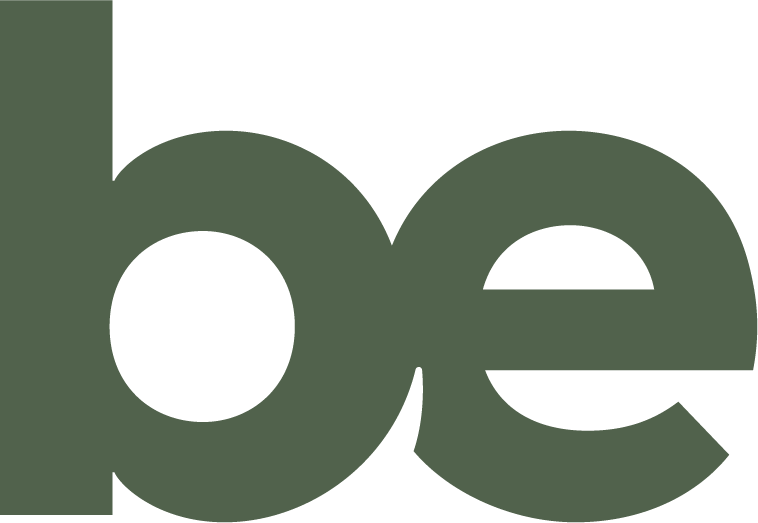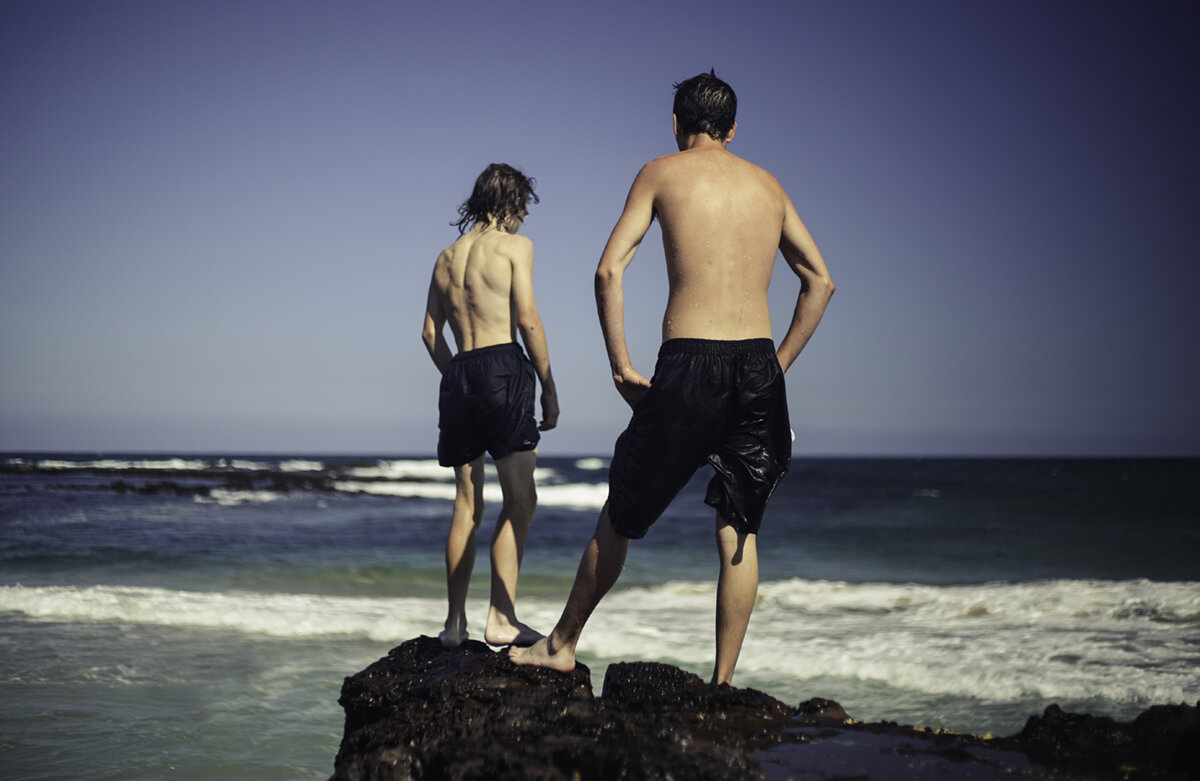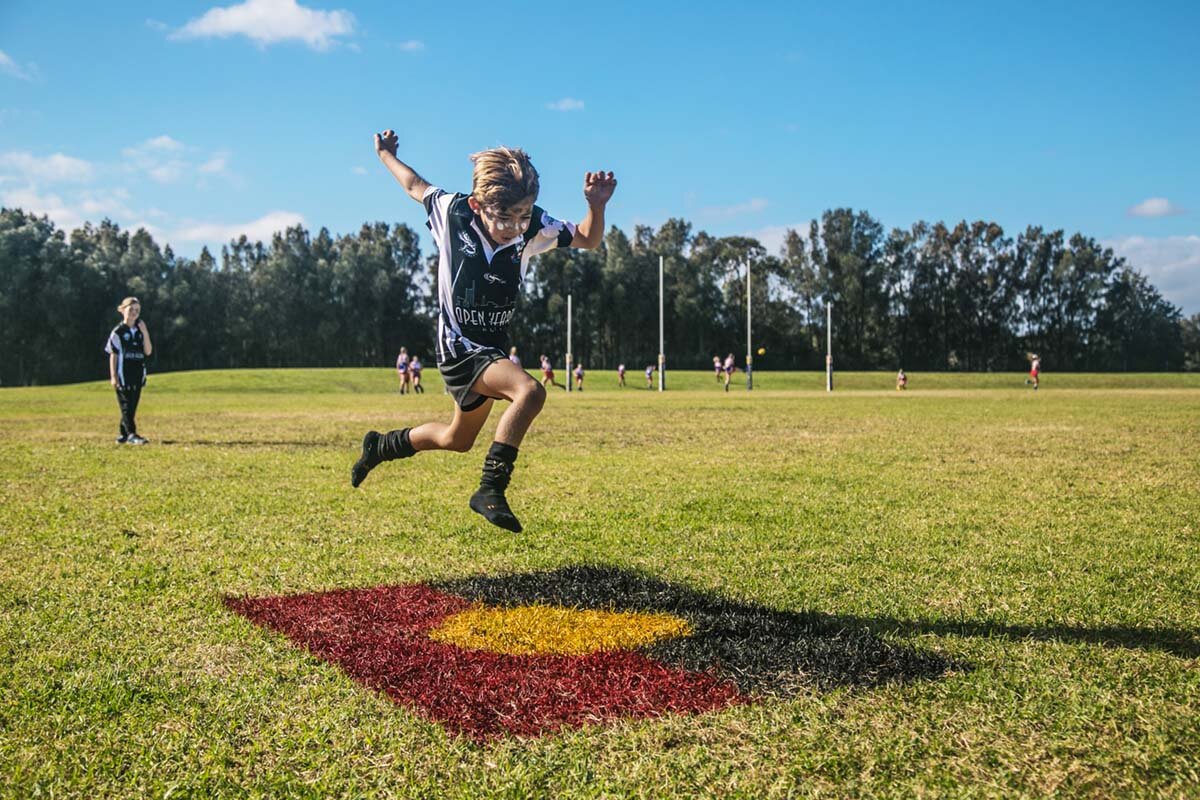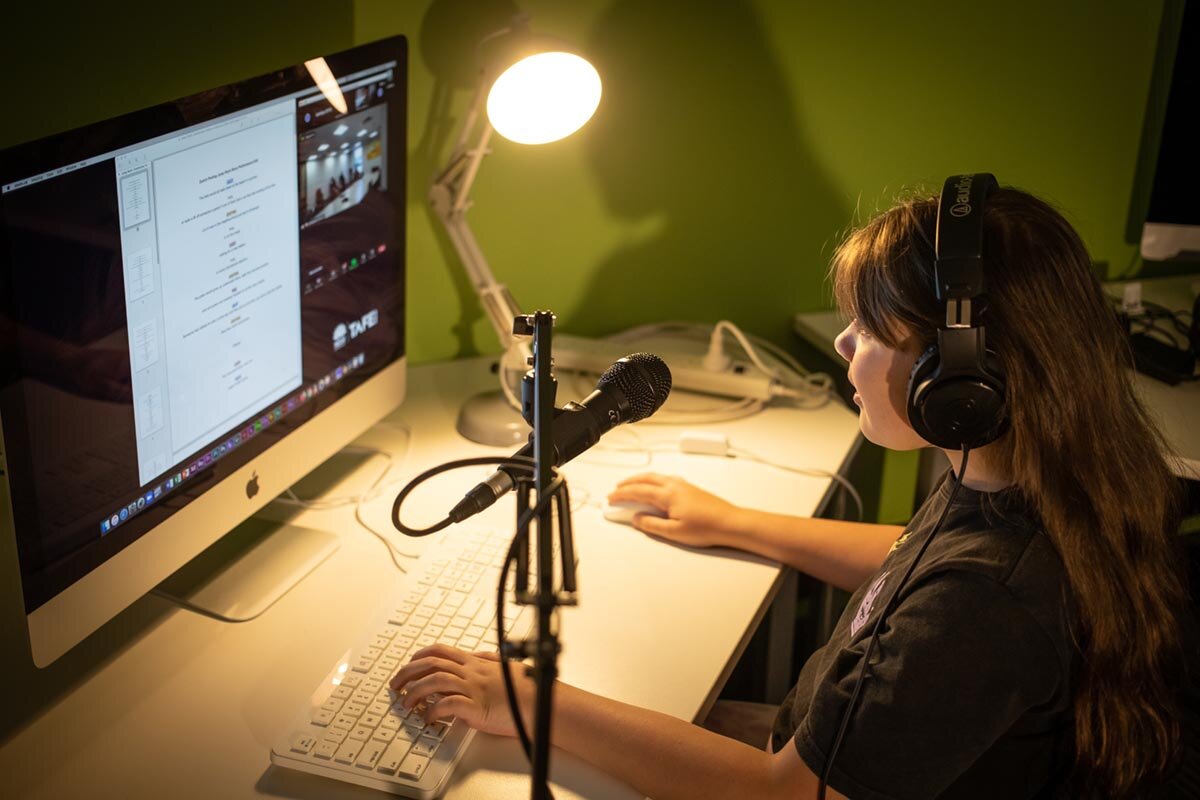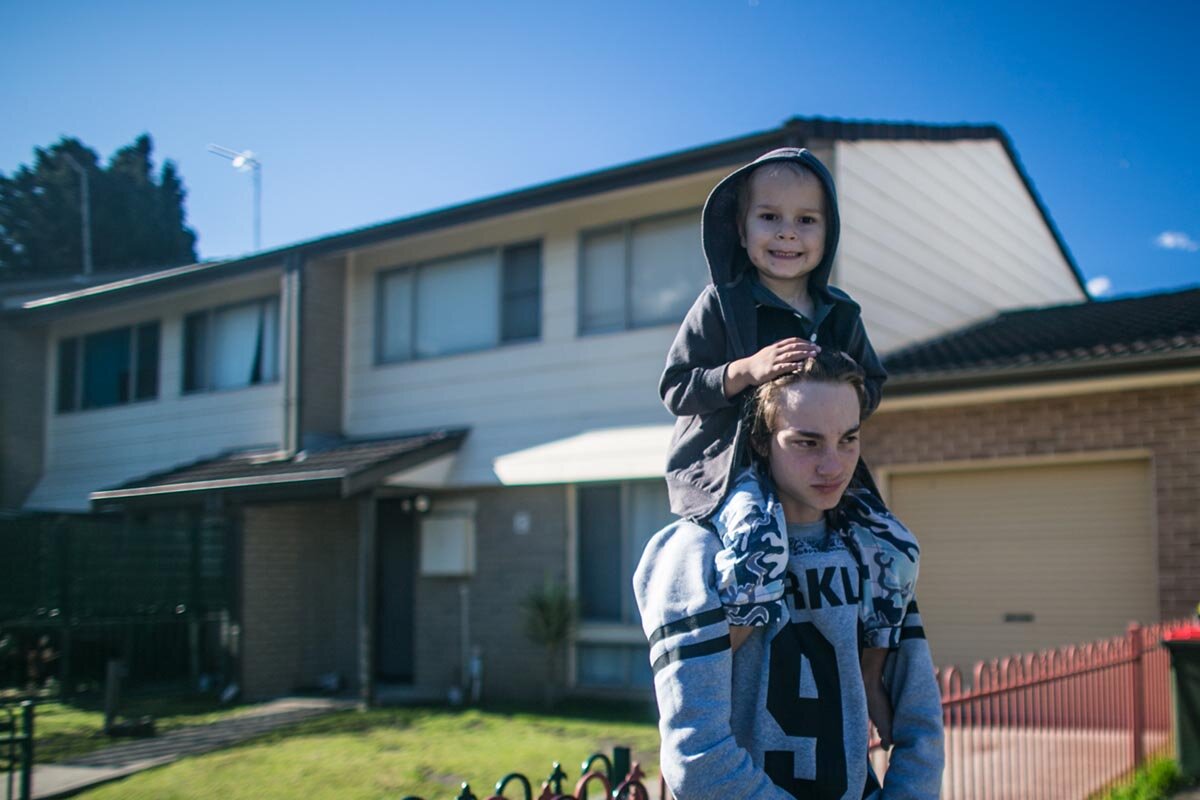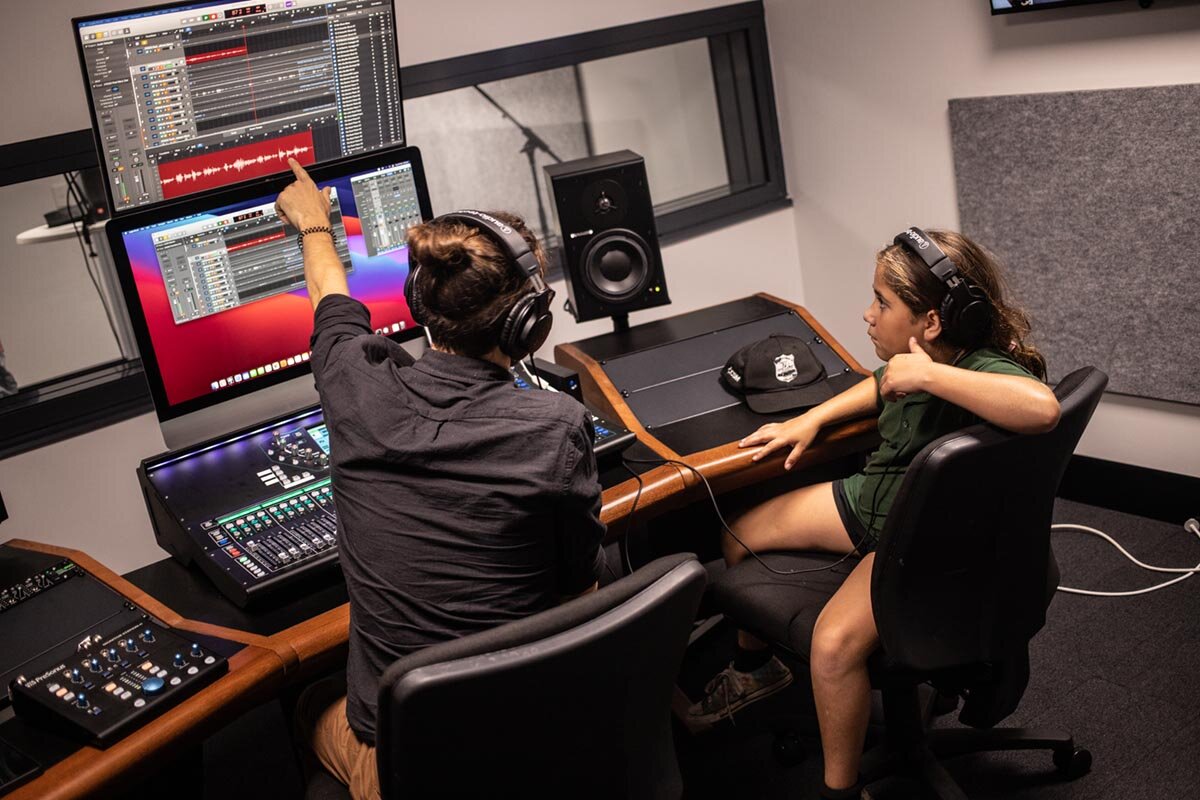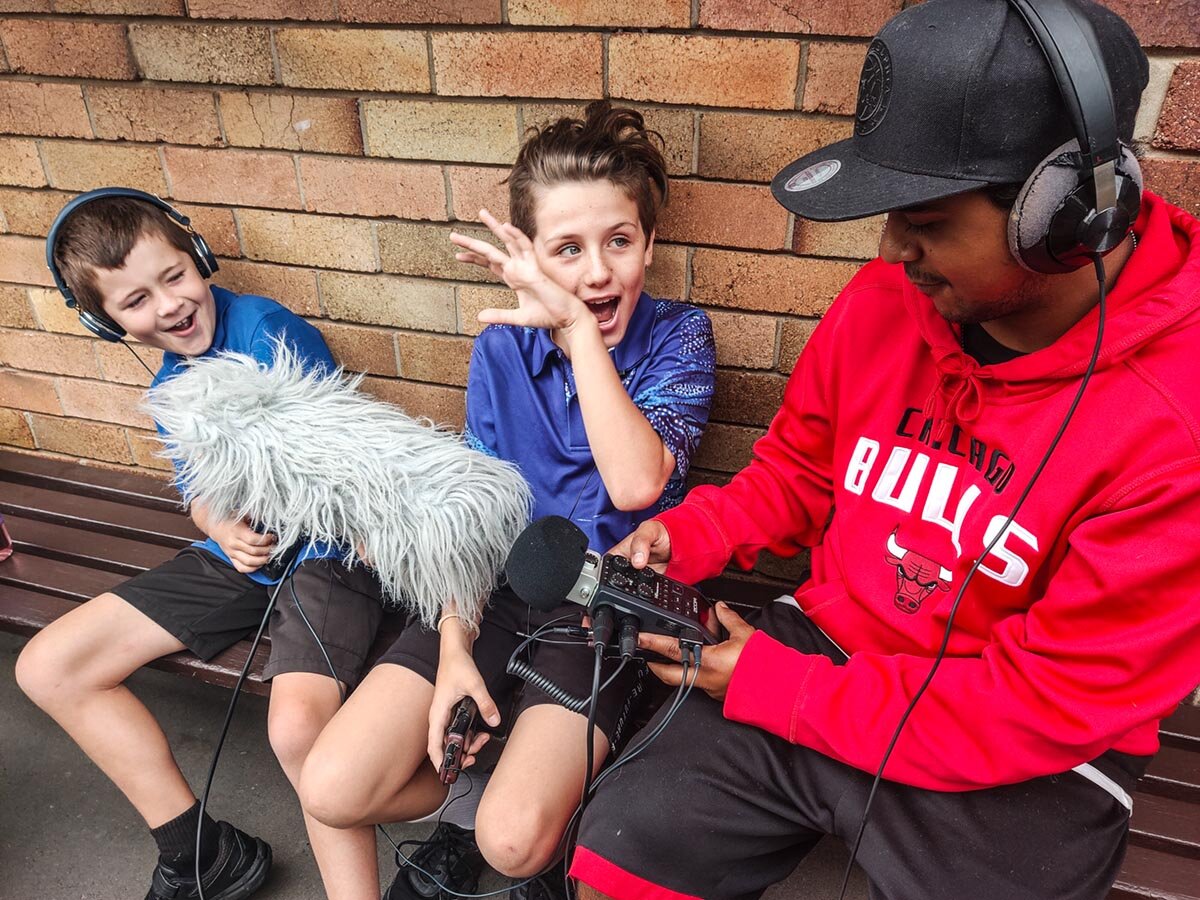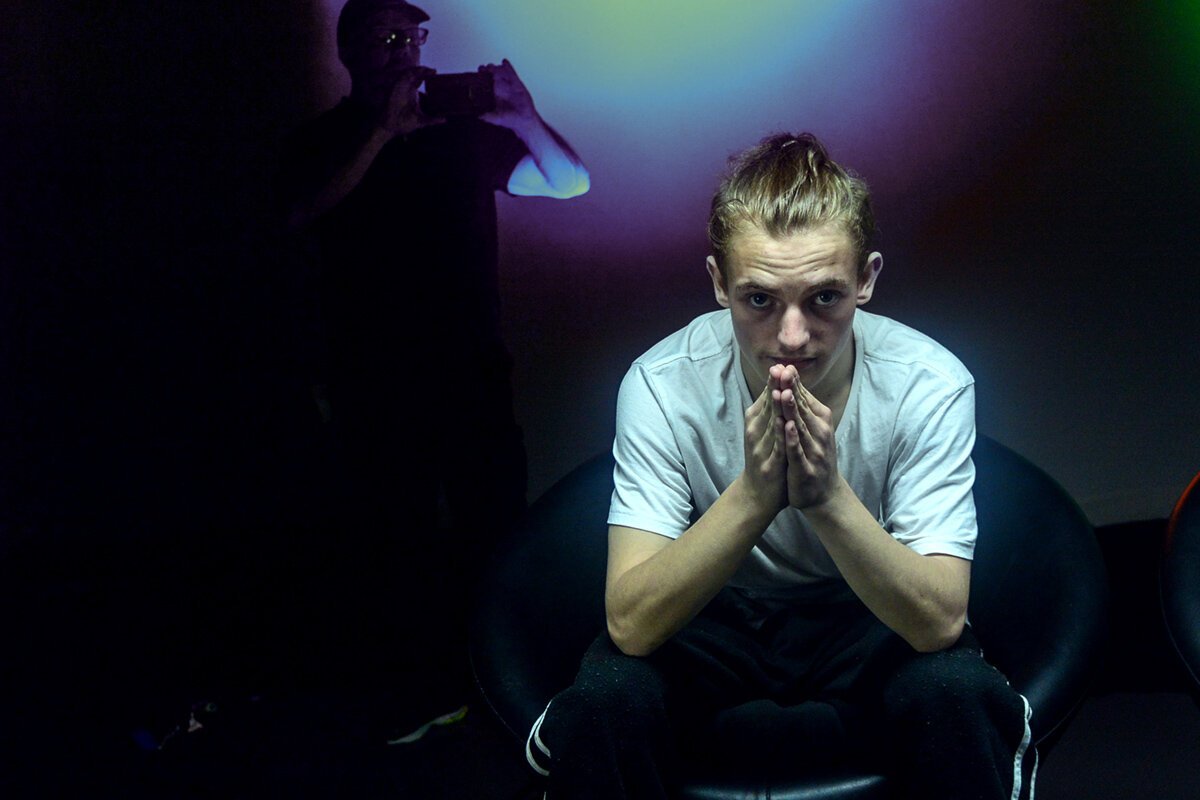Podcasts from the Edge
Podcasts from the Edge is an integrated community development project that creates an extensive series of thematic podcasts in places considered disadvantaged. Through the process of creating art, young people make and present podcast stories that tackle issues affecting their families and their neighbourhoods. The process teaches skills, activates better community engagement and empowers them, their friends and families to break down the effects of social disadvantage. Consequently, people find local and self-determined ways to build new pathways into improved health and wellbeing, learning, employment and social inclusion.
How to listen →
Shift
The health of young people in the community is a shared focus for us and many of our partner organisations, including Healthy Cities Illawarra, Headspace, Local Health Promotions and others. Shaping How I Feel Today (SHIFT) is a podcast project in which young people discuss physical health and nutrition in formats that are meaningful to them, helping to create pathways to better health and wellbeing. The health messages in SHIFT are approachable and open, instead of being prescriptive about behaviour. The messages are about being mindful about what you do and what you eat, leading to improved health, personal agency and empowered decision making. The project’s story-telling techniques and information focus on mental wellbeing as a pathway to making healthy, well-rounded decisions in all aspects of life.
Parting
Parting works with families to interweave fictional stories about death and dying from people who have experienced hardship and disadvantage. Through audio, storytelling, multi-media and live performance, stories become accessible and relevant to a broad audience. Parting prioritises dignity, building personal and family agency to deal with the related emotions of grief and loss, longing and belonging when in crisis.
Baladjarang
Children collaborate with Elders, family members, neighbours, community peers and schools to create fictional and informational audio and video stories about First Nations culture that include Dharawal language. Following the success of previous projects Protection and Rites of Passage, we bring together the children and young people who co-created these award-winning films to consolidate their skills and learn new ones in Baladjarang. Venturing from the public housing estates where they live and with the guidance of our Elders, our young people go “on country” and create stories using film, audio, music and photography that explore First Nations experience and include First Nations language. Working on this project helps develop creative skills as well as further embedding the culture of story and language in families and across the community.
Ready Steady
Ready Steady uses art to build heaps of more-better words for kids to improve life opportunities in disadvantaged places. Ready steady is a project that collaborates with people of all ages in public housing areas of Shellharbour and Wollongong LGA to produce, record and perform stories that use heaps of more-better words for kids. Ready Steady creates a social media resource hub for parents and community members to learn and interact with each other around creating those essential language development experiences for all children in our community. Ready Steady stories are assembled into a podcast series and presented at live community events. The Ready Steady podcast series also include informational spots that highlight practical ways that parents and the whole community can interact with under 4-year old’s to improve relationships, connection and communication to improve their educational and life opportunities.
The Podcasts from the Edge project has received funding from The Australian Government's arts funding and advisory body, the Australia Council for the Arts, Create NSW, Zurich Australia through the Z Zurich Foundation, COORDINARE - South Eastern NSW PHN through the Australian Government's PHN Program, the Australian Government Department of Social Services under the Families and Communities Program through Barnardos Australia and The Tony Foundation.

